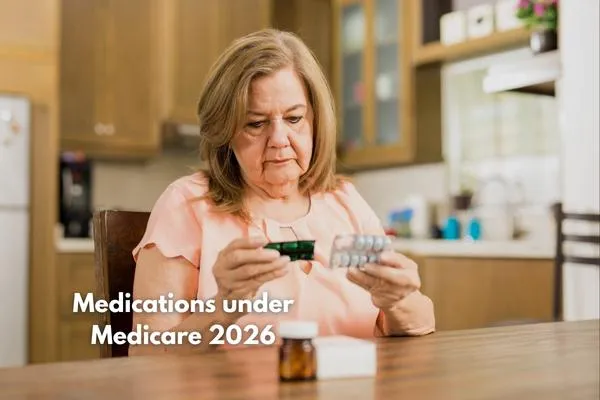
What to Do If Your Medications Are No Longer Covered by Your Medicare Plan in 2026
Every year, Medicare updates its health and drug coverage plans, and these changes can affect which medications are included in the plan’s formulary (the list of covered drugs).
If in 2026 you notice that one or more of your prescriptions are no longer covered or have increased in cost, it’s important to act quickly and strategically.
This article will walk you through why these changes happen, what your options are, and how to make sure you keep getting the medications you need without interruptions.
1. Why Medicare Plans Stop Covering Certain Medications
Insurance companies that offer Medicare drug coverage (either through Part D or Medicare Advantage plans with prescription benefits) update their formularies every year. This may happen because of:
New drugs or generics entering the market
Pricing and contract adjustments with drug manufacturers
Medical guideline updates or FDA recommendations
Changes in coverage tiers or copay levels
This means that the medication you take today might not be covered next year — or it may move to a higher cost tier.
2. How to Know If Your Medications Will Still Be Covered in 2026
Every fall, during the Medicare Open Enrollment period (October 15 to December 7), plans are required to send an Annual Notice of Change (ANOC).
This document includes details about:
Medications that will no longer be covered
Drugs that have moved to different cost levels (tiers)
New prior authorization or step therapy requirements
Review this notice carefully. If you see changes to any of your medications, don’t wait — you have until December 7 to switch plans or take action before the new year begins.

3. What to Do If Your Medication Is No Longer Covered
If you discover that a medication you rely on will no longer be covered in 2026, here are several practical options:
a. Talk to Your Doctor
Your doctor can review alternative medications that are covered by your current plan. If there’s no suitable alternative, your provider can submit a coverage exception request to your plan.
b. Request a Coverage Exception
A coverage exception allows your plan to cover a medication not listed on its formulary or to lower your cost-sharing level for it.
To request one, your doctor must provide documentation showing that the excluded medication is medically necessary. Your plan is required to respond within 72 hours (or sooner in urgent cases).
c. Compare and Change Plans During Open Enrollment
If your prescription is costly or essential, the best solution might be to switch to a Medicare plan that covers it.
Use the official Medicare Plan Finder to compare plans. You can enter your list of medications and preferred pharmacies to find the best match for your needs.
d. Explore Discount and Assistance Programs
Some drug manufacturers, pharmacies, and nonprofits offer discount programs or patient assistance.
You may also qualify for the Extra Help program, which assists Medicare beneficiaries with limited income in paying for prescription drug costs.
4. How to Change Plans Safely and Effectively
During the Medicare Open Enrollment Period (October 15–December 7), you can switch your Medicare Advantage or Part D plan without penalty.
Follow these steps:
Make a list of all your current prescriptions, including doses and frequency.
Compare available plans on Medicare.gov.
Check pharmacy networks and monthly premium costs.
Enroll in your new plan before canceling the old one.
Your new coverage will begin January 1, 2026, ensuring no gaps in your medication access.

5. Prevent Medication Interruptions
Once your new plan takes effect, take these proactive steps:
Refill prescriptions before December 31 to have enough supply during the transition.
Confirm that your pharmacy has your new plan information on file.
Carry a copy of your new insurance card when picking up prescriptions.
Doing this helps prevent delays, denials, or confusion at the pharmacy counter.
6. Key Tips for 2026
Review your plan every year, even if you’re satisfied with it.
Look at the total annual cost, not just the monthly premium.
Ask about generic alternatives whenever possible.
Consult a certified Medicare advisor for professional guidance.
At SF Solutions, we specialize in helping seniors and Medicare beneficiaries review, compare, and optimize their coverage — so they don’t lose access to the care and medications they depend on.



